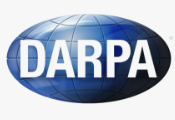Physicists Arrange Atoms in Extremely Close Proximity
Physicists Arrange Atoms in Extremely Close Proximity
MIT physicists developed a technique to arrange atoms in much closer proximity than previously possible, down to 50 nanometers. The group plans to use the method to manipulate atoms into configurations that could generate the first purely magnetic quantum gate — a key building block for a new type of quantum computer.


























